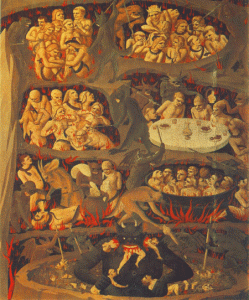IN A previous post, The World, the Sacred Heart and the New Mass, I noted how the old Postcommunion for the Feast of the Sacred was changed in the Missal of Paul VI in order to accommodate modernist theology on the world and earthly things.
 Many of the changes in the Propers of the new Missal reflect this “new view of human values,” as Bugnini’s assistant, Carlo Braga called it. (See Work of Human Hands, 223). For the most part, such changes went unnoticed in traditionalist critiques of the reformed rite. But in the liturgy, the little stuff starts to add up.
Many of the changes in the Propers of the new Missal reflect this “new view of human values,” as Bugnini’s assistant, Carlo Braga called it. (See Work of Human Hands, 223). For the most part, such changes went unnoticed in traditionalist critiques of the reformed rite. But in the liturgy, the little stuff starts to add up.
In the Sunday orations in particular, the reformers routinely abolished or rewrote texts containing ideas that “contemporary man” (i.e., godless, secular man) finds disturbing. One such example is the tomorrow’s Collect for the Sunday within the Octave of Sacred Heart (Pentecost III), which was “sanitized” of unpleasant implications and then put to use in the new Missal’s 17th Sunday in Ordinary Time.
Both the old and the revised texts begin the same way:
O God, the protector of those who hope in Thee,
without whom nothing is strong, nothing holy,
increase Thy mercy towards us;
that with Thee as ruler and guide,
The old text then continues:
we may so pass through the good things of time
that we may not lose the good things of eternity.
In the Missal of Paul VI — the Latin version, please note — this passage was was revised as follows:
we may now so use transient things
that we may cling to those things which endure.
The allusion to the possibility of damnation — the loss of heaven through the misuse of temporal things — has disappeared. In its place is clinging to “things which endure,” a vague, though infinitely more positive notion. (See WHH, 228)
If even such a discreet mention of hell had to go, a fortiori the other more direct references in the collects of the traditional Missal had to disappear as well: everlasting death, eternal punishment, the pains of hell, its fire, etc. (See WHH, 227–8)
Contemporary man does not make hell part of his “new perspectives” — and the Missal of Paul VI is happy to oblige him.
“Hermeneutic of continuity”? Don’t believe it.
Lex orandi, lex credendi.
3 Comments